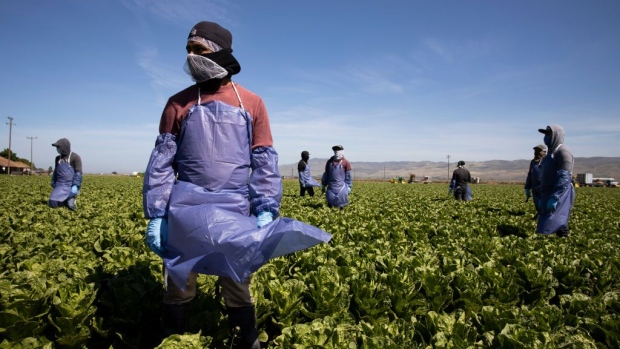Government of Canada launches consultations to inform the National Agricultural Labour Strategy

Canada’s agriculture and agri-food sector is an important engine of economic growth that feeds millions of people in Canada and around the world. It is also part of the country’s critical infrastructure, essential to the health and well-being of all Canadians
Minister of Agriculture and Agri-Food, the Honourable Marie-Claude Bibeau, launched consultations to solicit input and inform a National Agricultural Labour Strategy.
The agriculture and agri-food sector faces obstacles that distinguish it from other economic sectors currently facing labour shortages. As part of the engagement process, an online consultationwill open on June 27, 2022 and run until September 28, 2022.
“As everyone is looking to Canada to increase its contribution to global food security, our agriculture and agri-food sector is facing a severe labour shortage that prevents it from reaching its full potential,” stated Bibeau. “I encourage all stakeholders to take part in these consultations, through which our government wishes to foster the significant engagement of the industry and ensure that together we put in place effective and sustainable solutions.”
“These consultations, along with the development of our Workforce Strategy will create pragmatic solutions for short and long-term labour issues in the food supply chain“
This process will seek input on recommendations to address chronic workforce challenges to build short- and long-term solutions that enable the agriculture sector to attract a skilled workforce. Provinces and territories, as well as employers, unions, underrepresented groups, workers, and other key groups will be engaged to develop the strategy and ensure it reflects the unique needs of the sector.
“A skilled and reliable labour force is an important part of our resilience as a sector,” added Francis Drouin, Parliamentary Secretary to the Minister of Agriculture and Agri-Food and Member of Parliament for Glengarry–Prescott–Russell. “We have already seen, and will continue to build off, the strong leadership in this space. The strategy will help to ensure that Canada continues to deliver the high quality of food needed in our country and around the world.”
A number of areas of focus have been identified, including the use of automation and technology, targeted skills development and training, employment incentives and best practices, improved working conditions and benefits; and programs to recruit and retain workers.
“Canada’s agricultural sector feeds millions of people each year, and is a huge driver of our national economy,” Carla Qualtrough, Minister of Employment, Workforce Development and Disability Inclusion said. “To ensure it can continue to grow and innovate, we’re working with industry partners to build the strong, skilled workforce they need to thrive.”
“We at CFA are excited for the launch of these consultations, as they will be coordinating closely with the CAHRC National Agriculture, Food and Beverage Manufacturing Workforce strategy co-chaired by CFA and Food and Beverage Canada,” stated Mary Robinson, President of Canadian Federation of Agriculture. “These consultations, along with the development of our Workforce Strategy will create pragmatic solutions for short and long-term labour issues in the food supply chain.”
The sector is already demonstrating leadership in tackling these challenges, through initiatives such as the Canadian Agriculture Human Resource Council-led development of a National Workforce Strategic Plan for Agriculture and Food and Beverage Manufacturing.
“Food and Beverage Canada welcomes the launch today of consultations to develop a sector-specific labour strategy to address labour shortages in food and beverage manufacturing, as well as in agricutlure,” added Kathleen Sullivan, CEO, Food and Beverage Canada. “With our partners at CAHRC and CFA, we look forward to continuing our work on the National Workforce Strategic Plan for Agriculture and Food and Beverage Manufacturing, which will help to inform these important consultations as we seek to develop a roadmap to address persistent labour shortages in the agri-food sector”.
The Government of Canada’s National Agricultural Labour Strategy is intended to complement these efforts and utilize input directly from industry to achieve solutions.
“CAHRC is pleased for the launch of these timely consultations on a sector-specific Agricultural Labour Strategy,” Paul Glenn, Chair, Canadian Agricultural Human Resource Council said. “We look forward to working closely and collaboratively with AAFC and our partners CFA and Food and Beverage Canada on our complimentary initiatives that will go a long way towards finding long-term solutions for a robust, skilled workforce.”
The Government of Canada is committed to taking concrete action in addressing the ongoing labour challenges facing the country’s agriculture and agri-food sector and to best position the sector for future growth.












